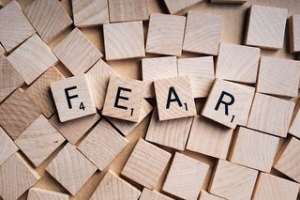
"Knowledge is power" is the adage, but if that of Africans is found wanting then it is because taboos and myths have diluted ours for too long. In my youthful days in the early seventies my knowledge from the traditional perspective of the SNAKE, for example, was as follows:
1. All snakes are poisonous.
2. It's real name "cwc" (in the Akan language) was not mentioned to avoid inviting it. So other replacement names like "aboateaa," "anadwoboa," "aboa no," were used.
3. It roams about when it is sunny.
4. If you kill it you have to behead it and bury the head separately from the body, else it will resurrect.
The adders were cool since it is lazy and can sleep for weeks and months, and more so if you could place a carrying pad on it (because it assumes that God is going to give it a load to carry).
5. Its horn is poisonous as any snake skeleton.
6 Eating onion after snakebite is an anti venom.
7. If you see the mamba, be sure to see it again, because it claims it is too beautiful to be seen only once.
8. It is the often-sent agent of satan/witches.
9. The python is poisonous.
10. The python hunts it's prey by stretching from the ground on its tail to rest on a tree branch in wait for its prey which will see it as another tree and get close enough for an attack.
It appears only Nos.1 and 3 are largely true. I learnt enough from my S4 biology class to disregard the rest. I remember making our (Peacekeeping Volunteer) biology teacher, a Mr. MacCornack, attempt piercing his palm with a snake bone from the lab to prove my queries wrong. Eventually and unfortunately my many questions cost me a sack from class for a couple of weeks for selfishly challenging and wasting the class's time. This too shows how I earlier got convinced with the traditional "myths."
On the traditional side of the coin, there was this "juju" (medicine) man who exploited this ignorance of the public to sell his products (assorted ring, amulets, etc for love, for fighting, for protection etc). I remember how in his fancy attire, painted and copiously ringged body he would chant, brandish his whisker and captivatingly pick the youngish python and put it round his neck etc for the applause of the spectators.
After the class lesson on snakes/reptiles, I just looked at such juju practitioners shrugged and smiled for my knowledge that it wasn't any powers they had that controlled the snake but rather that the pythons were nonpoisonous. And as I realized later pythons had been kept in many European homes as a pet whereas Africans dreaded them in Africa!
Even now I can bet that with all the knowledge to date, few are the Africans who would feel comfortable looking at any snake, whether poisonous or not, and fewer still are those who would even go near them even if they have to kill it to protect their family!
I also remember (with bare hands) catching a live agama lizard which had fallen from the roof into our water barrel, to submit to the school lab for keeps, and my mother looking at me as if I was not normal, lol. To her the lizard could also be dangerous for handling. Among others the skink allegedly can bite one's shadow and cause havoc to the person, the frog changing ones sex if it leaps unto the latter. Funny are the myths though, but with traditional obedience of elders one is discouraged from experimenting for possible alternative findings. How can one know about something or a person they are afraid to go near!
So for our reluctance to explore, Africans are playing second fiddle all the time to those who have made it both their business and hobby to explore nature/environment/creation. The long and short of it is that our African traditional system is choked with taboos and myths. And these taboos and myths are hindering our advancement!




 Akufo-Addo commissions Phase II of Kaleo solar power plant
Akufo-Addo commissions Phase II of Kaleo solar power plant
 NDC panics over Bawumia’s visit to Pope Francis
NDC panics over Bawumia’s visit to Pope Francis
 EC blasts Mahama over “false” claims on recruitment of Returning Officers
EC blasts Mahama over “false” claims on recruitment of Returning Officers
 Lands Minister gives ultimatum to Future Global Resources to revamp Prestea/Bogo...
Lands Minister gives ultimatum to Future Global Resources to revamp Prestea/Bogo...
 Wa Naa appeals to Akufo-Addo to audit state lands in Wa
Wa Naa appeals to Akufo-Addo to audit state lands in Wa
 Prof Opoku-Agyemang misunderstood Bawumia’s ‘driver mate’ analogy – Miracles Abo...
Prof Opoku-Agyemang misunderstood Bawumia’s ‘driver mate’ analogy – Miracles Abo...
 EU confident Ghana will not sign Anti-LGBTQI Bill
EU confident Ghana will not sign Anti-LGBTQI Bill
 Suspend implementation of Planting for Food and Jobs for 2024 - Stakeholders
Suspend implementation of Planting for Food and Jobs for 2024 - Stakeholders
 Tema West Municipal Assembly gets Ghana's First Female Aircraft Marshaller as ne...
Tema West Municipal Assembly gets Ghana's First Female Aircraft Marshaller as ne...
 Dumsor is affecting us double, release timetable – Disability Federation to ECG
Dumsor is affecting us double, release timetable – Disability Federation to ECG
